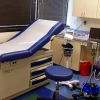How Physical Activity Protects Your Heart: Insights and Personal Experience
1- The Importance of Physical Activity for Heart Health
We often hear that "exercise is good for you," but when it comes to heart health, it's not just good—it's essential. As someone who has experienced the ups and downs of staying active, I can tell you that physical activity is one of the most powerful tools in preventing heart disease. It's easy to overlook the role that exercise plays in heart health, but once you understand the science behind it, you'll see why it's so critical for long-term well-being.
Heart disease is the leading cause of death worldwide, but the good news is that regular physical activity is one of the most effective ways to reduce your risk. From improving blood circulation to lowering blood pressure, exercise provides a wide range of heart benefits. In my personal experience, I have seen how a consistent exercise routine can drastically improve not only heart health but also overall quality of life.

2- How Exercise Helps Prevent Heart Disease
So, what exactly happens when you engage in physical activity? Well, exercise works on multiple levels to protect your heart. Let's break it down:
- Lowering Blood Pressure: High blood pressure is one of the primary risk factors for heart disease. Regular aerobic exercises, such as walking, jogging, or cycling, can help lower blood pressure and improve your heart's efficiency.
- Improving Cholesterol Levels: Physical activity increases the production of high-density lipoprotein (HDL), which is the "good" cholesterol that helps remove harmful cholesterol from your bloodstream.
- Strengthening the Heart: Just like any other muscle in the body, the heart gets stronger with regular exercise. As your heart becomes stronger, it can pump blood more efficiently, delivering oxygen and nutrients throughout your body with less effort.
- Reducing Inflammation: Chronic inflammation is linked to heart disease, and exercise helps reduce this inflammation, thereby reducing the risk of cardiovascular problems.
- Helping Maintain a Healthy Weight: Maintaining a healthy weight is another key factor in preventing heart disease, and regular exercise helps you burn calories and improve metabolism, which helps keep weight under control.
3- My Personal Story: How Exercise Transformed My Heart Health
Years ago, I struggled with my weight and lacked the motivation to exercise regularly. Despite knowing the importance of physical activity, I often found myself too tired or too busy to prioritize it. That is until I received some life-changing news from my doctor. I was at a higher risk for heart disease due to family history, and I was advised to make lifestyle changes—specifically incorporating more exercise into my daily routine.
At first, I was overwhelmed. I didn’t know where to start or how to make exercise a part of my daily life. But gradually, I began with small steps. I started walking for 20 minutes a day, and then I slowly increased the duration and intensity. I remember the first time I completed a 30-minute walk without feeling winded—it was a huge victory for me. Over time, as I increased my exercise routine, I started feeling better, both physically and mentally. My energy levels soared, and I noticed that my blood pressure and cholesterol levels improved significantly.
Most importantly, I started feeling in control of my heart health. I realized that exercise wasn’t just a recommendation—it was a vital part of my heart disease prevention plan. It didn’t matter how busy I was; I knew that setting aside time to move my body was an investment in my long-term health.
Atlanta Heart Specialists
atlanta heart specialists
4375 Johns Creek Pkwy #350, Suwanee, GA 30024, USA

4- The Science Behind Exercise and Heart Disease Prevention
Physical activity is more than just a way to shed extra pounds or build muscle. It’s a powerful tool that works on a molecular level to improve heart health. Research has shown that regular exercise helps regulate blood sugar levels, reduces the risk of developing type 2 diabetes (a major risk factor for heart disease), and decreases the likelihood of developing other cardiovascular diseases.
When we exercise, our bodies release endorphins, which help improve mood and reduce stress—two factors that can negatively impact heart health. Additionally, regular physical activity promotes vascular health, making blood vessels more flexible and helping to prevent the buildup of plaque in the arteries. This is crucial for reducing the risk of atherosclerosis, a condition where plaque hardens the arteries and leads to heart attacks or strokes.
Scientific studies continue to highlight the importance of regular exercise, with some findings suggesting that just 150 minutes of moderate-intensity exercise per week can significantly reduce the risk of heart disease. Whether it’s a brisk walk, a bike ride, or a swim, finding an activity you enjoy is key to maintaining a healthy, heart-protective exercise routine.
5- Tips for Getting Started with Exercise for Heart Health
If you're new to exercise or haven't been active in a while, it's important to start slow and build up gradually. Here are some tips to help you get started:
- Start Small: Begin with light activities like walking or stretching. Aim for 10-15 minutes a day and gradually increase the time as you build stamina.
- Find Activities You Enjoy: Whether it's dancing, swimming, hiking, or yoga, choose activities that bring you joy. The more fun exercise is, the more likely you are to stick with it.
- Make it a Habit: Set a regular time each day for physical activity. Consistency is key when it comes to heart health, so make exercise a non-negotiable part of your daily routine.
- Listen to Your Body: It's important to pay attention to how your body feels during and after exercise. If you're feeling pain or discomfort, it may be a sign that you need to rest or modify your activity.
Remember, any amount of physical activity is better than none. Start with what you can do and gradually work up to more intense exercises. As you continue to stay active, you’ll notice improvements in your heart health, energy levels, and overall well-being.
If you’re looking for personalized recommendations on heart health or need guidance on finding the best heart specialists or hospitals, visit HeartCare Hub for trusted information and resources.





















Deborah Heart and Lung Center
deborah heart and lung center
200 Trenton Rd, Browns Mills, NJ 08015, USA